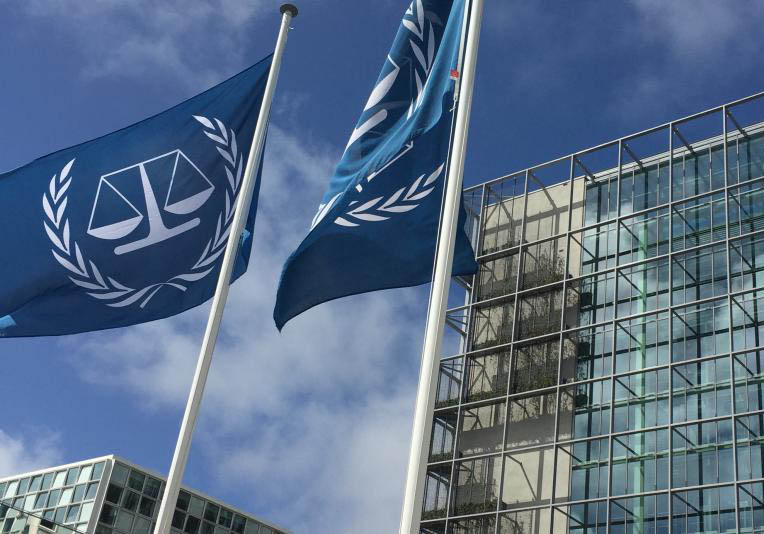The Hungarian authorities must immediately arrest Benjamin Netanyahu and hand him over to the International Criminal Court (ICC), the International Commission of Jurists (ICJ) said today.
As Benjamin Netanyahu – the Prime Minister of Israel against whom the ICC issued an arrest warrant for war crimes and crimes against humanity allegedly committed in the Gaza Strip, Palestine – visits Hungary, Viktor Orbán, Hungary’s Prime Minister, has vowed that Mr Netanyahu would not be arrested or surrendered to the ICC. Moreover, the government of Hungary announced it would take measures for the country to withdraw from the Rome Statute, the ICC’s founding treaty.
“Benjamin Netanyahu is a wanted man; during his visit to Hungary, he must be arrested. The ICC’s warrant for his arrest is based on reasonable grounds that he bears criminal responsibility for grave crimes perpetrated in Palestine. By refusing to arrest and surrender him to the ICC, Hungary is undermining the Court and violating its obligations under the Rome Statute,” said Saïd Benarbia, ICJ Middle East and North Africa Programme Director.
Hungary, as a State Party to the ICC, is under an obligation to arrest and surrender Israel’s Prime Minister to the Court during his visit to the country, once requested by the ICC to do so. Even if Hungary does withdraw from the Rome Statute, its withdrawal would not relieve the country from its legal obligations under the Rome Statute while Hungary was a Party to it. Thus, the Hungarian authorities remain bound by such obligations and should promptly arrest and surrender Mr Netanyahu to the ICC.
Mr Orbán’s announcement comes against the backdrop of several other States Parties to the Rome Statute undermining the Court. Earlier this year, Poland and Germany both invited Mr Netanyahu to visit their respective countries, pledging not to arrest him. Ultimately, Mr Netanyahu did not travel to either. In January 2025, Italy failed to transfer Osama Elmasry – a Libyan national suspected of having committed war crimes and crimes against humanity in Mitiga prison, in Tripoli, Libya – to the Court, pursuant to an ICC arrest warrant, despite the fact that the Italian authorities had actually arrested him.
At a time when the ICC is already being attacked by politicized United States’ sanctions, the ICJ deplores this series of setbacks for universal accountability. As impunity for crimes under international law fuels the perpetration of further egregious crimes and the continuation of hostilities in Palestine, ICC States Parties should protect the Court and reaffirm its authority rather than undermining it.
Background
On 20 May 2024, the ICC Prosecutor announced that he had applied for arrest warrants against Benjamin Netanyahu and Yoav Gallant, the Israeli Minister of Defence at the time, as well as against Yahya Sinwar, Mohamed Diab Ibrahim Al-Masri, also known as Deif, and Ismail Haniyeh, respectively the military and political leaders of Hamas.
On 21 November 2024, Pre-Trial Chamber I of the ICC issued arrest warrants for Benjamin Netanyahu, Yoav Gallant and Mohamed Deif. By then, Israel had killed both Ismail Haniyeh and Yahya Sinwar. The Chamber found reasonable grounds to believe that Mr Netanyahu bears criminal responsibility for the war crime of starvation as a method of warfare, and the crimes against humanity of murder, persecution, and other inhumane acts, allegedly committed in the Gaza Strip. The Chamber later terminated the proceedings against Mohamed Deif in light of his death.
On 27 November 2024, Israel notified the Appeals Chamber that it would appeal the Pre-Trial Chamber’s decision that the Court has jurisdiction over crimes committed by Israeli nationals in Palestine. In its Notification of Appeal, Israel requested that the Appeals Chamber order the suspension of the arrest warrants pending the outcome of the appeal. Israel filed its appeal before the Appeals Chamber on 13 December 2024. The Appeals Chamber has not ruled on Israel’s appeal or on Israel’s request to suspend the arrest warrants. Under article 82(3) of the Rome Statute, the arrest warrants remain in effect until the Appeals Chamber issues an order on Israel’s request for their suspension or reverses the Pre-Trial Chamber’s original decision to issue them.
In amicus curiae observations submitted to the ICC on 6 August 2024, the ICJ submitted that the ICC has jurisdiction over crimes allegedly perpetrated by Israeli nationals on the territory of the State of Palestine.
Contact
Saïd Benarbia, Director, ICJ Middle East and North Africa Programme; t: +41 22 979 3800, e: said.benarbia@icj.org
Nour Al Hajj, Communications & Advocacy Officer, ICJ Middle East and North Africa Programme; e: nour.alhajj@icj.org





